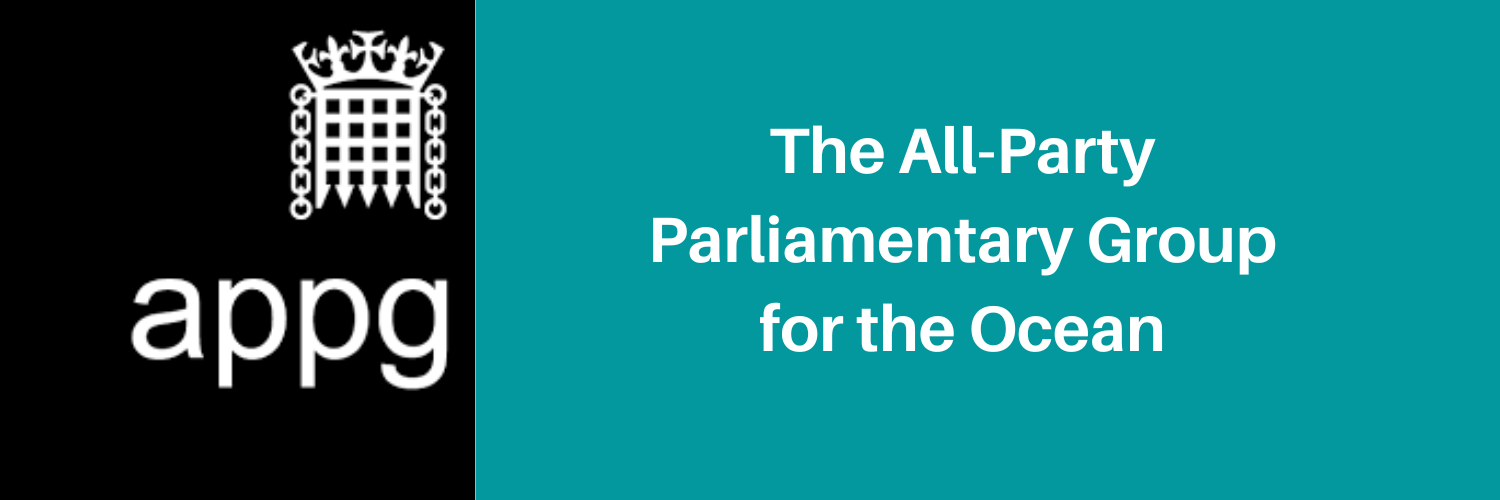Parliamentarians call for Blue Carbon revolution to tackle climate change
The All-Party Parliamentary Group for the Ocean has today released “The Ocean: Turning the Tide on Climate Change”, which examines blue carbon and ocean-based solutions to climate change. The report calls for the Government to prioritise and facilitate investment in blue carbon and ocean-based solutions in order to combat climate change, making several key recommendations including:
Calling for the Government to commit to re-align and restore 20% of UK’s saltmarsh and seagrass habitats by 2030.
Since the 1930s, the UK has lost more than 90% of seagrass meadows. Saltmarsh and seagrass habitats are an essential blue carbon habitat in UK coasts and must be re-aligned, restored and protected, to continue storing carbon which would otherwise be realised into the atmosphere.
The establishment of ‘Highly Protected Marine Areas’ and the banning of harmful practices, particularly bottom trawling and dredging, across all existing UK MPAs.
Bottom trawling, or dredging, is a harmful industrial fishing practice which can result in the destruction of marine ecosystems and the disturbance of seabed carbon stores. The APPG is calling for these practices to be banned within the 371 Marine Protected Areas (MPAs) around the UK, and for the UK to go one step further and establish Highly Protected Marine Areas (HPMAs), which would offer the strictest environmental protections and would offer the best chance of restoration and recovery.
The inclusion of more aspects of marine carbon storage and sequestration, specifically saltmarsh and seagrass, into UK Greenhouse Gas Inventory.
Blue carbon habitats are not currently included in the UK’s national Greenhouse Gas inventory. Doing so would facilitate greater monitoring and understanding of blue carbon storage potential and would provide a wider picture of emissions within the UK.
Calling for the Government to prioritise research funding into ocean-based carbon dioxide removal approaches and to adopt a code of conduct into ocean-based carbon dioxide removal.
There is an urgent need for greater research into ocean-based CDR approaches, which offer great risks, yet are currently under researched and there are no agreed criteria to guide this research. A code of conduct, followed by prioritised strategic and coordinated funding streams to assesses the feasibility of implementing CDR approaches, would allow greater engagement, using and understanding these methods.
Calling on the Government to include blue carbon habitat mapping within the UK’s EEZ.
The UK’s Exclusive Economic Zone is the fifth largest in the world but how much carbon is currently sequestered within this area is not included in its mapping. Including blue carbon habitat mapping would allow the UK to play a world-leading role in monitoring, reporting and understanding of blue carbon stores.
The creation of a Minister for the Ocean to coordinate all ocean issues under one direct and exclusive ministerial responsibility.
There is a Ministerial gap within UK Government, with no-one currently and directly responsible for all ocean issues. There is a keen urgency for a specific Minister for the Ocean position which would have direct and exclusive responsibility for all ocean issues.
Sally-Ann Hart MP, Chair of the APPG for the Ocean, said: “For too long our ocean has been the missing part of our journey to net zero and it is essential that the Government take rapid action to increase the ocean’s critical role in tackling climate change.
Our oceans offer significant solutions that can mitigate and combat climate change. The ocean occupies over 70% of the planet’s surface area and it is predicted that UK blue carbon ecosystems sequester and store around 2% of UK emissions per year. There is a huge potential lying beneath our waters, which have yet to be fully realised.
Worryingly, blue carbon and ocean-based solutions are disappearing and require urgent restoration and protection. We are therefore calling on the Government to protect our marine areas and ensure greater research and provide more sustainable funding for all types of blue carbon and carbon dioxide removal.
Our report shows the overwhelming necessity and urgency of including blue carbon in climate change policy and discussions, to protect the future of our oceans and of our planet. It is time to view our ocean not only as something that needs protecting but a useful tool that can help to tackle climate change.”
Professor Ed Hill CBE, Chief Executive of the National Oceanography Centre, said: “The ocean is the largest active carbon reservoir on our planet, and without it the Earth would be substantially warmer than it is at present. There is no climate solution without the ocean, and it is encouraging to see this being recognised in this APPG report.
Blue carbon and ocean-based carbon dioxide removal must be grounded in scientific evidence. Focused funding, such as the Natural Environment Research Council’s BIO-Carbon programme, is critical to helping ocean scientists make informed policy recommendations in the blue carbon space. Significant, sustained investment is needed from Government to support ocean science research on a scale we know we need to meet the challenges of climate change.”
